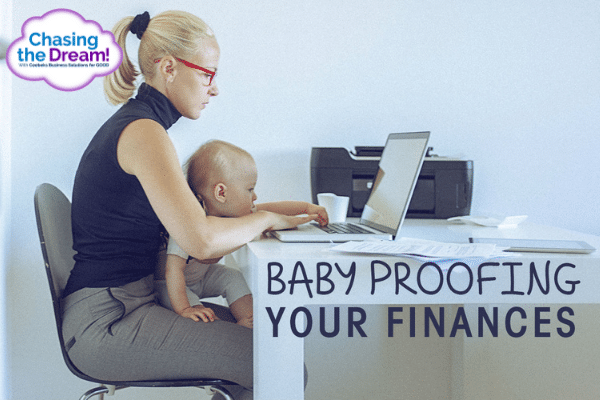Becoming a parent brings a world of joy into your life, but it can also put a strain on your household finances. So if you’re planning to take time off work to look after your little one, make sure you’re financially prepared.
Although the prospect of taking months off work to look after a newborn baby is exciting, it can also be daunting. And when you’re busy getting ready to welcome your new addition, it’s easy to put off thinking about how parenthood will affect your finances.
Like any major life change, the key is to start preparing for it as soon as you can. That includes putting together a realistic financial plan that covers the periods before, during and after your parental leave. Here are some things to consider.
What are the costs?
There’s no denying that having kids is expensive. First, there are the medical bills during pregnancy, then there are the ongoing costs of food, clothing, toys and healthcare – and that’s before you start considering your child’s future education expenses.
If you’re expecting your first child, the bills can rack up even further when you factor in one-off expenses like cots and strollers. So if you’re looking to keep costs down, make a list of everything you need and ask friends or family members if you can borrow any items that their own kids no longer use.
What are your entitlements?
The Australian Government operates a paid parental leave scheme, with an allowance set at the National Minimum Wage ($753.80 a week).
Payments are a maximum of 18 weeks for mums or primary carers and two weeks for dads or partners. Plus, you’re entitled to parental leave pay if your annual income is under $150,000 and you’ve been employed for at least 10 of the 13 months before the birth or adoption of your child and have worked for 330 hours during that 10 month period. Any payments you receive will also count towards your taxable income, so ask us what it will mean for your financial position.
Some employers may provide additional payments through their own paid parental leave scheme, which won’t affect your government entitlements. But make sure you check with your employer first so you’re clear about what they offer.
Everyone’s employment situation and financial circumstances are different, so the impacts of parental leave will also differ from one household to the next. The most important thing is to create a careful budget that takes into account any changes to your income and any additional living expenses once bub arrives.
How will your Super be affected?
Dealing with a reduced income while you’re on parental leave is one thing, but have you also considered how a career break might impact your retirement savings? While you’re off work, your employer isn’t obligated to keep contributing to your super, which could really slow down the growth of your nest egg. For those on unpaid leave, your employer normally stops contributing to your super altogether.
As an example, let’s look at Julia, who just turned 30 and is about to take 18 months off work after having her first child. She currently earns $80,000 a year.
During her career break, Julia won’t receive super contributions from her employer and she’s not planning to top up her super from her own savings. This means that way down the track when she’s ready to retire, Julia could end up with a super gap of almost $11,000 from her 18 months of maternity leave.
Get the Right Advice
With a baby on the way, there are always a million things to do – but make sure you fit in time to speak to us as well. We are able to show you how a career break could affect your current and future finances, and help you build a smart financial plan for the years ahead.
Once your finances are sorted, you’ll then be able to focus on the most important thing in your life – your new little bundle of joy.


